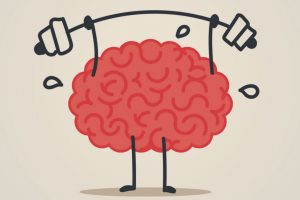The Depreciated Legacy of Cervantes
At the beginning of the depreciated legacy of Cervantes, the writer makes the idea that the entire History of Europe, extending as much as America, has plunged right into a crisis with the development of technological know-how and technology. As a novelist, Kundera states that the founding father of Modern Europe is Cervantes, Don Quixote’s writer.
The European novelist’s awareness on numerous subject matters. With Cervantes, it turned into the journey. With Balzac, it became a guy’s rootedness in History. With Flaubert, it was the incognita of the day. With Tolstoy, it turned into intrusions into the irrationality of human behavior. The subject of the European Novel lay inside the passion for recognizing the concrete character of existence.
The novel started to have a very own phase of lifestyles which changed into renegade with Nietzsche’s topic: Death of God. With Cervantes, the truth became baptized as a useless fossil, and there emerged a plethora of truths; the man or woman has become an imaginary self. The understanding of suitable and evil attains a relativistic individual, one in all ambiguity. Kundera fees Kafka’s novel, The Trial, in which an innocent man K turns into the victim of an unjust court.
Don Quixote is a novel in which time exists as a juxtaposition between magic and reality. The angle of time adjustments whilst History enters into the world of being. With the approaching of Balzac, the institutions of the society like money, crime, police, and law and order input as epic proportions in the novel. The current novel is a paradox where characters are flavored with disaster, but there’s the individual’s triumph.

Even even though Modern Europe characterizes the upward thrust of rationality-the identification of the self breaks aside, Europe is entangled in the horror of battle. Destiny, purposelessness, and angst catch directly to the person’s existence. Values wreck down. There is a fantastic deal of intolerance and fanaticism.
The novel will become a paradoxical organization. The writer comments on the demise of the Novel by the Dadaists and the surrealists. He paints a bleak photograph of the unconventional in communist totalitarian societies. The novel, in the course of the Communist regime, had to face censorship and bans.
Milan Kundera classifies the radical into 4 express issues: the enchantment of play, the appeal of a dream, the appeal of the concept, and the attraction of time.
Now, what is the enchantment of play? Does it mean to say that the unconventional is a fanciful organization? Let’s study the enchantment of play from the angle of postmodernism. The postmodern novel is an invasion of a person. Texts are a collection of metaphors. There is a bent to import severe irony and parody. Likewise, there is an inherent tendency to lampoon novels of the past and write in the fashion of the pastiche.
Now let’s study the attraction of ideas. The creator desires to say that the unconventional attains a texture of a philosophical entity. The interiority of time becomes an elevated aircraft of thought. An instance of the appeal of notion lies inside the streams of cognizance of Joyce.
What is the enchantment of dreams? The enchantment of dream is a juxtaposition of dream and reality. Bach recites magic realism and mouths electric-powered sandwiches. Dream allows the manifestation of the unconscious.
What is the appeal of time? Time is ironically located in interiority. Time will become an enormous enigma of irrationality, an oasis of intimacy, narcissism of the soul, an eclectic mutiny of the thoughts.
Here the author comments on the quest for the unconventional—the novel factors out to the elusiveness of fact.
Dialogue on the Art of the Novel
Here Kundera dialogues that his novel isn’t a dictum of psychological aesthetics. I would love to dispute this with him on this point. Aesthetics is the futurism of the unconventional-the avant-garde novel of writing. The novel needs to resemble Picasso’s Cubist work, an explication of Camus’s philosophical work: The Myth of the Sisyphus, a piece of baroque tune.
Looking at the novel from a mental framework, we must confront the futility of existential destiny. Disaster marks the triumph of individuality. There will be a bent of the novel to exorcise the demons of catastrophe and subvert the individual’s identity right into a pathos of sympathetic irony.
In the passage, Kundera questions the capacity of the unconventional to grasp the self. For Sartre, the self is an entity of nothingness. Postmodernism wants to subvert the self. Gratify the ID, deify the Ego and subvert the Super Ego.
During the age of Cervantes, the self-changed into deconstructed from the piety of chivalry. In Kafka, we see the disintegration of the self. The self becomes a victim of tyrannical bureaucratic edifices. In Joyce, the self-swims in a sea of streams of cognizance.
The creator constructs dialogues about the self and History. The self inside the novel is a manner of revelation. The self is a confessional symptom. The self is an artwork of lyrical intimacy. A novelist cannot break out the regularly occurring nature of History. History defined in the novel brings out the voices of dissent and the aroma of despair. History undergoes the subjectivity of castrated characterization.
The writer classifies the radical as considered one of being a poly-historical luminosity. What does the time period poly-historical mean? It consists of numerous subjects in the novel like art, aphorism, tropes, and pathological characterization of the self.
Dialogue at the artwork of composition
Here he writes the time period-Kafka after Kafka. He uses an example to demonstrate the time period. An engineer from a Communist Country goes to London and returns and finds the clicking has slandered him via saying that he has badly spoken of America’s united states. He techniques the editor who says he was given the story from the ministry of the interior. While he is going to the indoors’ ministry, they apologize by saying that it became a mistake. The warfare between the private and the general public is defined with the aid of the writer because of Kafka. ‘
The remaining section of the e-book is a compilation of a dictionary of phrases he has used for his novels.
Aphorism
An aphorism is very clear, which means a concise statement.
Beauty and Knowledge
What is the term stunning in the novel? For Cervantes, it changed into an adventure. For Kafka, it becomes existential angst, protest towards totalitarian bureaucracies. For Joyce, it turned into the looking of artwork in mundane studies. What is information? Kundera does not offer a nice clarification of it.
Betrayal
He describes betrayal as one of breaking ranks. The notion of betrayal poses a problem in the novel. Let me illustrate by giving an instance. Judas betrayed Christ for thirty portions of silver. Why did the need for stating Christ emerge, considering he turned into a famous parent? The trouble of betrayal inside the novel is a complex one.
Border
A border is signified with emotional phrases: like hate, love, and angst. The border is unique has no definable limit.
Comic
Comic for the novelist isn’t what makes us chortle; however a revelation of the unknown.
Destiny
Destiny is the conflict of the self. Destiny is absurd, and we should creatively authenticate a destiny.
Excitation
Excitation for the writer is erotic.
Forgetting
Forgetting is a term used to bring to memory a scenario in ironic phrases.
Dream
The dream lies in exploiting the ID to create weird, enigmatic phantasmagorias.
Irony
An irony for the author is the edification of man or woman. It makes the person distraught. As a novelistic technique, the irony is sublime in literature.
Kitsch
Kitsch, for the author, is a sentimental flaw. Kitsch is a time period in which the sentiment, vulgar and often sive, is melodiously gratified in narcissism.



















